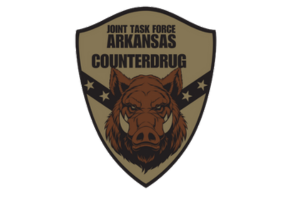From:
https://drugfree.org/article/risk-factors-why-teens-use/
 Ninety percent of addictions start in the teen years. Don’t ignore risk factors and assume your child will be okay, or simply ignore a problem because you think it’s just a passing stage of development. If something appears wrong, start taking action.
Ninety percent of addictions start in the teen years. Don’t ignore risk factors and assume your child will be okay, or simply ignore a problem because you think it’s just a passing stage of development. If something appears wrong, start taking action.
Common Risk Factors
Unfortunately, when it comes to kids and alcohol, parents can’t just gaze into a crystal ball to find out whether their kids will face problems with drinking or drug use in their teenage years. But there are biological and environmental factors you can watch out for to help you figure out if your child may be at a greater risk for addiction.
It is important to keep in mind that risk factors do not determine a child’s destiny — instead, they provide a general gauge as to the likelihood of drug or alcohol use. But it is safe to say that addressing risk factors early and paying careful attention to children at higher risk can reduce that child’s likelihood of a future problem with drugs or alcohol. Understanding risk factors is also very important when a child with more risk has already experimented with substances or has a problem.
Family History
Family history of drug or alcohol problems can place a child at increased risk for developing a problem. While there is a stronger biological risk if a child’s parents have addiction problems, he or she is still at an elevated risk if an aunt, uncle, grandparent or cousin has an addiction or is in recovery. Of course, inheriting the gene does not mean the child will automatically become dependent on alcohol — no single risk factor determines a child’s destiny.
If there is a history of a dependence or addiction in your family, you should let your child know since he or she is at a higher risk for developing a drug or alcohol problem. These conversations should take place no later than the pre-teen or early teen years. Discuss it in the same way you would if you had a disease like diabetes.
Not sure what to say? Try changing the following script to fit the needs of your situation and family:
“Your grandfather had a disease called alcoholism. It means he wasn’t able to drink alcohol, and when he did drink and wasn’t watching out for his health, it really hurt me and other people he loved. Yes, drinking is legal but some people can handle it and some people can’t. This disease can run in families so it’s something you need to watch out for — and I’m going to help you do that.”
Mental Health or Behavioral Issues
If your child has a psychiatric condition like depression, anxiety or Attention Deficit Hyperactivity Disorder (ADHD), he or she is at more risk for a drug or alcohol problem. Although not all teenagers with these disorders will develop a substance abuse problem, the chances are higher when they have difficulty regulating their thoughts and emotions. Therefore, parents with children with psychiatric conditions should be vigilant about the possibility of their teen using drugs or alcohol. It is also a good idea to talk with your health care providers about the connection between psychiatric conditions and substance use. Managing and treating underlying psychiatric conditions, or understanding how emotional and behavioral problems can trigger or escalate a substance use problem, is important for reducing risk and preventing co-occurring disorders.
Trauma
Children who have had a history of traumatic events (such as witnessing a car accident, experiencing a natural disaster, being a victim of physical or sexual abuse, etc.) have been shown to be more at risk for substance use problems later in life. Therefore, it is important for parents to recognize the possible impact of trauma on their child and get help for their child to address the issue.
Impulse Control Problems
Children who frequently take risks or have difficulty controlling impulses are more at risk for substance use problems. While most teens understand the dangers of taking risks, some have particular difficulty resisting impulses to engage in risky behavior — especially as teenagers.

Why Teens Use Drugs & Alcohol
It’s important to try and understand where interest in drug and alcohol use might come from. Beyond risk factors, teens have their own reasons for using drugs or alcohol. Below are some of the key factors that influence their decisions to do so.
Other People
Teenagers see their parents and other adults drinking alcohol, smoking cigarettes and, sometimes, trying other substances. Sometimes friends urge one another to have a drink or smoke pot, but it’s just as common for teens to start trying a substance because it’s readily available and they see all their friends enjoying it.
Popular Culture
Forty-five percent of teens agree with the statement “Movies and TV shows make drugs seem like an okay thing to do.” (PATS 2012) So be aware of the media that your son or daughter is consuming and talk to them about it.
Escape and Self-Medication
When teens are unhappy and can’t find a healthy outlet for their frustration or a trusted confidant, they may turn to chemicals for solace. The often rough teenage years can take an emotional toll on children, sometimes even causing depression, so when teens are given a chance to take something to make them feel better, many can’t resist.
Boredom
Teens who can’t tolerate being alone, have trouble keeping themselves occupied or crave excitement are prime candidates for substance use. Not only do alcohol and marijuana give them something to do, but those substances help fill the internal void they feel.
Rebellion
Alcohol is the drug of choice for the angry teenager because it frees him to behave aggressively. Methamphetamine, or meth, also encourages aggressive, violent behavior, and can be far more dangerous and potent than alcohol. Marijuana, on the other hand, often seems to reduce aggression and is more of an avoidance drug. The reasons for teenage drug-use are as complex as teenagers themselves.
Instant Gratification
Drugs and alcohol work quickly. The initial effects feel really good. Teenagers turn to drug use because they see it as a short-term shortcut to happiness.
Lack of Confidence
Many shy teenagers who lack confidence report that they’ll do things under the influence of alcohol or drugs that they might not otherwise. Not only do you have something in common with the other people around you, but there’s the mentality that if you do anything or say anything stupid, everyone will just think you had too many drinks or smoked too much weed.
Misinformation
Perhaps the most avoidable cause of substance use is inaccurate information about drugs and alcohol. Nearly every teenager has friends who claim to be experts on various recreational substances, and they’re happy to assure her that the risks are minimal. Educate your teenagers about drug use, so they get the real facts about the dangers of drug use.




